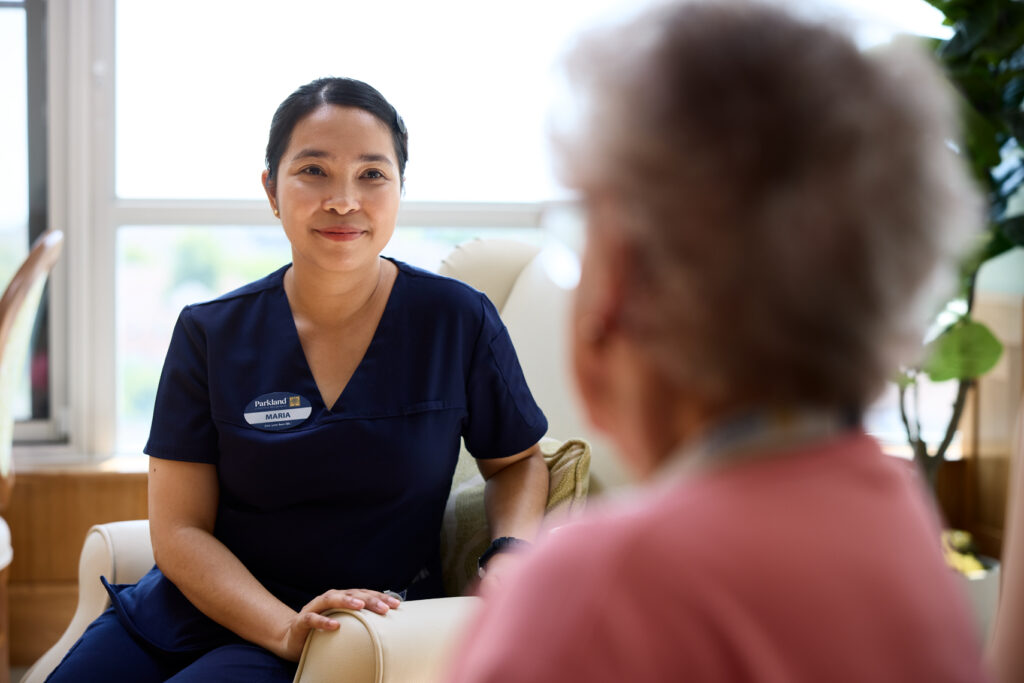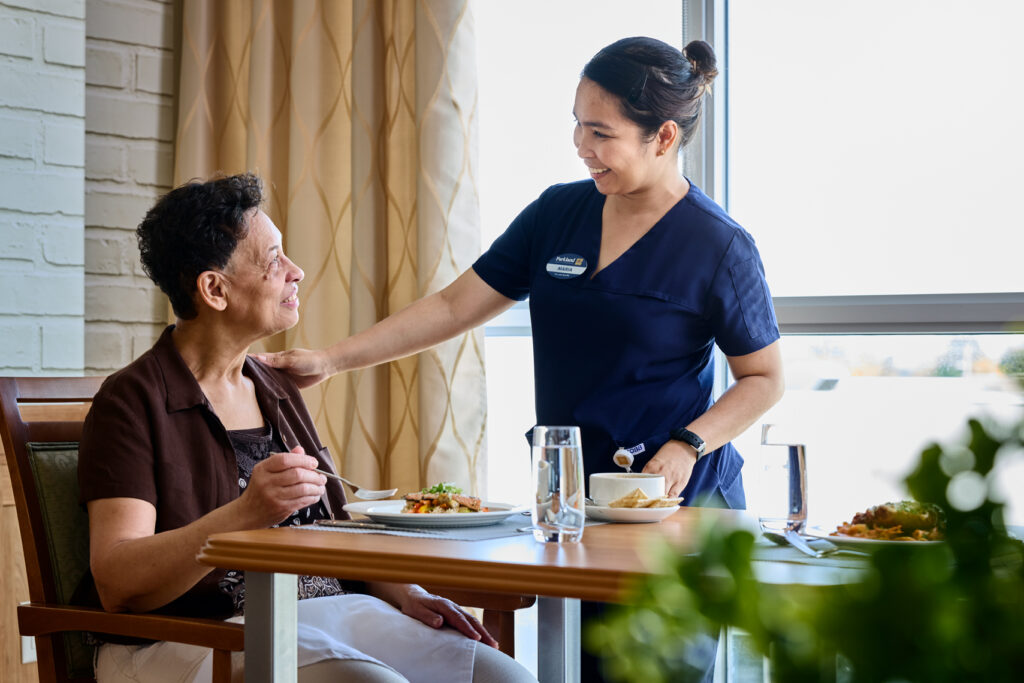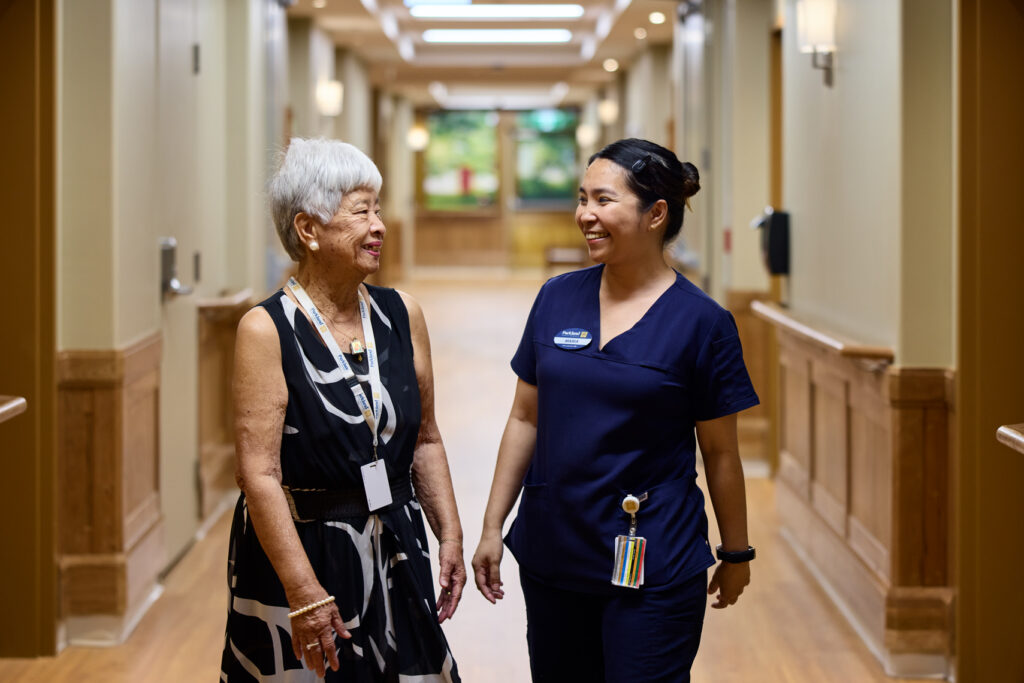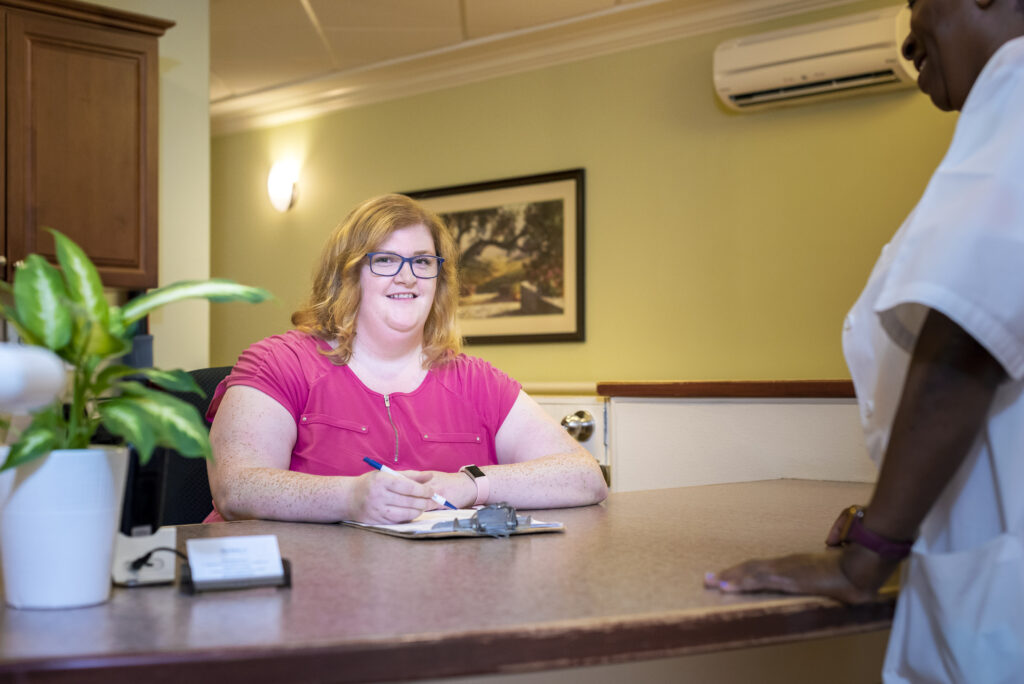What does a typical shift look like for a Continuing Care Assistant (CCA) and Personal Support Worker (PSW) ?
Shift Report
A Continuing Care Assistant (CCA) and Personal Support Worker (PSW) will start their day off by meeting with the whole care team for a report on the last shift. During this time, our Healthcare and Clinical career professionals discuss the summary given to them by the care team working on the prior shift. They will discuss any important information the group should know such as updates on the condition of residents and if their behaviour has changed.
This meeting allows the care team to plan where each CCA and PSW will be during their shift through the direction from Registered Nurses (RNs) and Licensed Practical Nurses (LPNs). They communicate to one another about who will be supporting what residents and the type of care they need to provide. Whether CCAs and PSWs are helping different residents per shift, the care they provide to each is usually similar in structure.


Morning Routine of a Continuing Care Assistant (CCA) and Personal Support Worker (PSW)
If a Continuing Care Assistant and Personal Support Worker starts their shift off in the morning, then they will help residents with their personal care and daily living activities. This includes assisting residents with getting out of bed, their hygiene, helping them with breakfast and cleaning various rooms.
Firstly, Continuing Care Assistant and Personal Support Workers will help residents get out of their bed. They use their knowledge and experience with transfers to support seniors with their mobility. Depending on the needs of residents, they might need support moving out of their bed and into a wheelchair or help standing up. Next, CCAs and PSWs help residents with their personal hygiene. For instance, Continuing Care Assistants provide residents with a partial bed bath, assistance with brushing their teeth and applying lotions for their skin care. A CCA and PSW may also help residents with a shower or bath during the morning, however, they might do this in the afternoon, evening or night.
In addition, they will help residents when getting dressed for the day. Similarly, residents might want to stay in their pajamas longer so our CCAs and PSWs support them with this.
Moreover, Continuing Care Assistants and Personal Support Workers help residents during breakfast. They will tailor their support to the needs of seniors living with us. For example, they will help residents with eating or if a resident needs a reminder to finish a portion of their meal. Additionally, they make sure the dining area is clean and ready for residents to start eating.
Lastly, they also support our communities through cleaning rooms and replenishing supplies. For instance, they will clean floors, tidy the living spaces and resupply products in rooms. Their role in this helps to keep our communities safe for all.
Want to learn more about CCAs and PSWs? Read about the Differences between a CCA, PSW, and PA.
Lunch and Afternoon Responsibilities of a Continuing Care Assistant (CCA) and Personal Support Worker (PSW)
In the afternoon, Continuing Care Assistants and Personal Support Workers will help residents as they have their lunch. As mentioned earlier, the level of support they provide will depend on the assistance a resident requires. Around this time, they will do a fluid pass such as giving residents a snack or drink.
After lunch, CCAs and PSWs continue their compassionate care as they help residents return to bed for a rest. In addition, they will continue providing hygiene care like showering or bathing if not done so in the morning. They will also do some household cleaning in the afternoon.
Continuing Care Assistants and Personal Support Workers will also support the recreation that happens for residents around 2:00 p.m. most days. Depending on the location, different households or wings of our nursing homes, there will be different leisure activities for each group. For instance, there may be music therapy or movies shown in the afternoon.


Dinner and Evening Care
Often our care team will transition during this time period. The next shift will typically start at 7:00 p.m. so the next care team will have their own shift report to update themselves on the needs of residents.
During the evening, they will support residents as they have dinner and help them with any additional hygiene care they require. Sometimes our residents feel more comfortable showering in the evening so our care teams can help with this. They will also continue cleaning rooms and common areas.
One of their priorities during the evening is to help residents get ready for bed. This means they do another fluid pass of snacks and drinks. They will then help transfer residents into their bed and make sure they are feeling comfortable.
Support throughout the Night
Our Continuing Care Assistants and Personal Support Workers continue their compassionate care during the night. At this time, they help make sure residents are sleeping. If a resident is unable to sleep, a CCA and PSW might walk around the building or stay with them as they watch a movie.
Their care doesn’t stop there. Residents might need help repositioning in their bed due to skin integrity and mobility needs. CCAs and PSWs will support this and also provide hygiene care twice a night.
Often, a Continuing Care Assistant and Personal Support Worker will complete their documents and administrative work at night. This includes recording the care they provided and any observation they made.
If there is any additional work not completed during the day, then they will do this at night when residents are resting. For example, a CCA and PSW might do additional cleaning like mopping the floors and cleaning wheelchairs.


Meaningful Work
Our CCAs and PSWs work alongside compassionate individuals as they provide care to residents. Their meaningful work helps our communities become a place where people can be proud to call home.
Want to work in a Healthcare and Clinical career with us? Sign up for career alerts today!
